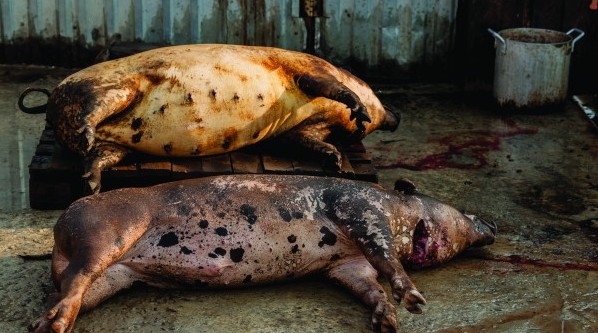South Korea has become the latest Asian country to report a case of African swine fever (ASF).
Four months after North Korea reported its first outbreak, the virus was discovered at a pig farm in Paju, near the border, the agriculture ministry said on Tuesday, Reuters reports.
Kim Hyeon-soo, South Korea’s agriculture minister, told reporters on Tuesday that nearly 4,000 pigs would be culled to prevent the spread of the virus, while South Korea is raising its addition animal disease alert level to the maximum.
“We will make all efforts to stop the spread of African swine fever through swift disinfection measures,” he said.
The ministry also ordered a nationwide movement ban of pigs and related livestock for 48 hours while it looks into the source of the virus, he said.
South Korea has a pig population of 11.3 million, according to Statistics Korea, and pork is South Korea’s most popular meat, particularly pork belly for barbecue. Pork consumption per person in 2018 was 27 kg, according to the agriculture ministry data.
The virus has spread across Asia since it was first detected in China in August 2018. It has also affected Vietnam, where more than 2.6 million pigs have been culled, Mongolia, Cambodia, Laos, Myanmar, Hong Kong, North Korea and the Philippines.
In the first eight months of this year, South Korea imported 374,961 tonnes of pork, down 3.6% from 388,772 tonnes over the same period a year earlier, according to customs data. In 2018, South Korea’s pork imports were over 570,000 tonnes.
South Korea, Asia’s fourth-largest economy mainly imports from the United States and Germany, and pork imports account for about a third of the country’s total pork supplies.
The UK currently exports small volumes of pork to South Korea. The UK and South Korea recently reached an agreement that ensures the current Free Trade Agreement between the EU and Korea will continue to apply in the UK, if we leave the EU without a deal in place.




